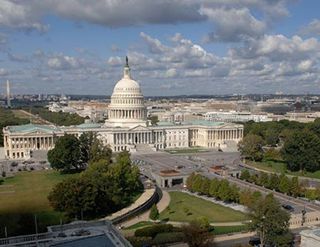Senate Bill Would Create National Broadband Access Standard

The FCC is being asked to set a national standard to determine whether mobile and broadband in rural areas is "reasonably comparable" to service in urban areas.
That request came in a bipartisan bill, the Rural Reasonable and Comparable Wireless Act of 2018, introduced Tuesday (Feb. 13) by Sens. Shelley Moore Capito (R-W.Va.) and Maggie Hassan (D-N.H.).
"While progress has been made, too many rural areas continue to fall behind," said Capito, chair of the Senate Broadband Caucus.
Related: President: We'll Spend 'Great Deal' on Rural Broadband
"The Rural Reasonable and Comparable Wireless Act will help bridge this digital divide by helping to ensure that rural areas — like those in West Virginia — have the access to high-speed internet that many of our urban communities do."
FCC chair Ajit Pai has made rural broadband access a key policy priority.
A similar bill was introduced in the House last year by Reps. David McKinley (R-W.Va.) and Peter Welch (D-Vt.).
"Correctly identifying areas still in need is very important to ensuring these locations are deemed eligible for critical Mobility Fund II support," said Competitive Carriers Association president Steven K. Berry. "Many competitive carriers serve remote and rural locations and depend on MF II support to expand their networks and provide the best service possible to their customers. All Americans, no matter where they live, work or travel, deserve access to robust mobile service."
Multichannel Newsletter
The smarter way to stay on top of the multichannel video marketplace. Sign up below.
Contributing editor John Eggerton has been an editor and/or writer on media regulation, legislation and policy for over four decades, including covering the FCC, FTC, Congress, the major media trade associations, and the federal courts. In addition to Multichannel News and Broadcasting + Cable, his work has appeared in Radio World, TV Technology, TV Fax, This Week in Consumer Electronics, Variety and the Encyclopedia Britannica.

